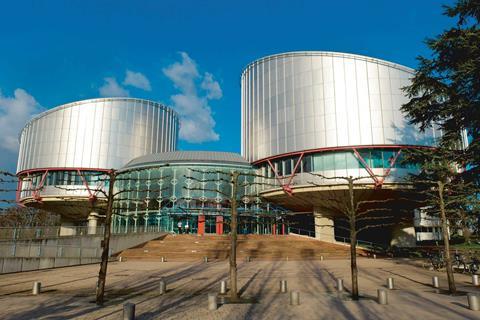The UK authorities failed to adequately protect two potential child trafficking victims who were discovered by police working on cannabis farms and charged with drug-related offences, the European Court of Human Rights has ruled.
The case, V.C.L and A.N. v the United Kingdom, marks the first time the court has considered the relationship between article 4 (prohibition of forced labour) of the European Convention on Human Rights and the prosecution of victims and potential victims of trafficking. The court published its judgment today.
According to the judgment, the first applicant submitted that: ‘Although the CPS supposedly considered the reports from the local authority and the competent authority which found that he had been trafficked, it came to a contrary view without any significant evidence capable of displacing the conclusion of the competent authority. There were no contemporaneous written records of these reviews and no witness statements were filed by the reviewing lawyers in the appellate proceedings.’
The court said that even though the first applicant was subsequently recognised by the competent authority as a trafficking victim, 'the CPS, without providing adequate reasons for its decision, disagreed with that assessment'.

In the second applicant’s case, the court said the CPS should have been aware of circumstances giving rise to a ‘credible suspicion’ that he had been trafficked.
Both applicants’ cases had been considered by the Court of Appeal.
The Strasbourg court said: ‘In dismissing the appeals by both applicants the Court of Appeal made it clear that a defendant is provided with one opportunity to give his instructions to his legal advisers and that it would only be “in the most exceptional cases” that the court would consider it appropriate to allow the defendant to advance fresh instructions about the facts for the purposes of an appeal against conviction.
‘In the [ECtHR]’s view, such an approach would in effect penalise victims of trafficking for not initially identifying themselves as such and allow the authorities to rely on their own failure to fulfil their duty under article 4 of the convention to take operational measures to protect them.
‘Consequently, the [ECtHR] does not consider that the appeal proceedings cured the defects in the proceedings which led to the applicants’ charging and eventual conviction.’
The European court ruled that articles 4 and 6 (right to a fair trial) of the convention had been violated ‘on account of the failure of the respondent state to fulfil its positive obligations under article 4 to take operational measures to protect the victims of trafficking’.
The UK government was ordered to pay damages of €25,000 to each applicant. Both sides have three months to ask for the case to be referred to the ECtHR Grand Chamber for a final ruling.
A Home Office spokesperson said: 'The government is committed to tackling the heinous crime of modern slavery and ensuring that victims are provided with the support they need to begin rebuilding their lives. We are carefully considering this judgment.'
V.C.L was represented by Garden Court Chambers' Henry Blaxland QC, Emma Fitzsimons and Stephen Clark, instructed by Philippa Southwell of Birds Solicitors. Michelle Brewer, now a first-tier tribunal judge, also represented V.C.L.
A.N was represented by One Pump Court barrister Parosha Chandran and Markella Papadouli, European litigation coordinator at the AIRE Centre (Advice on Individual Rights in Europe).



























8 Readers' comments